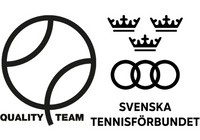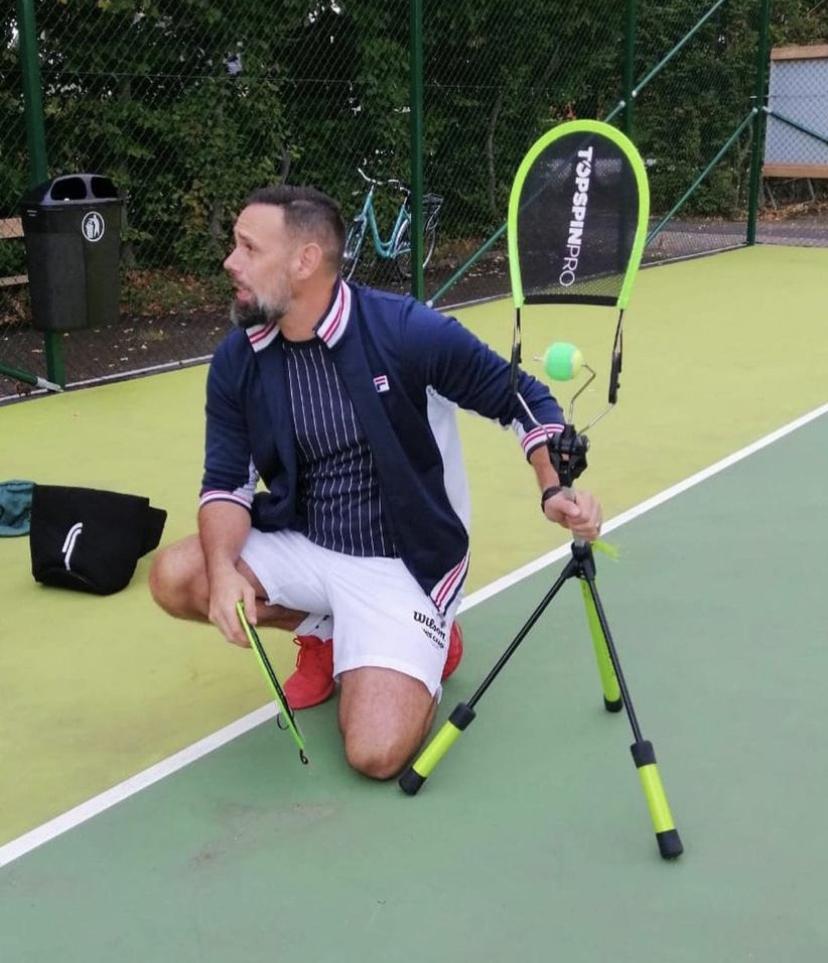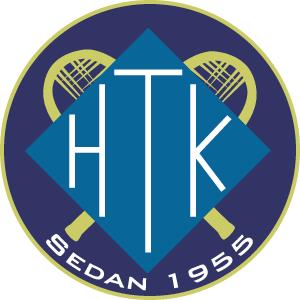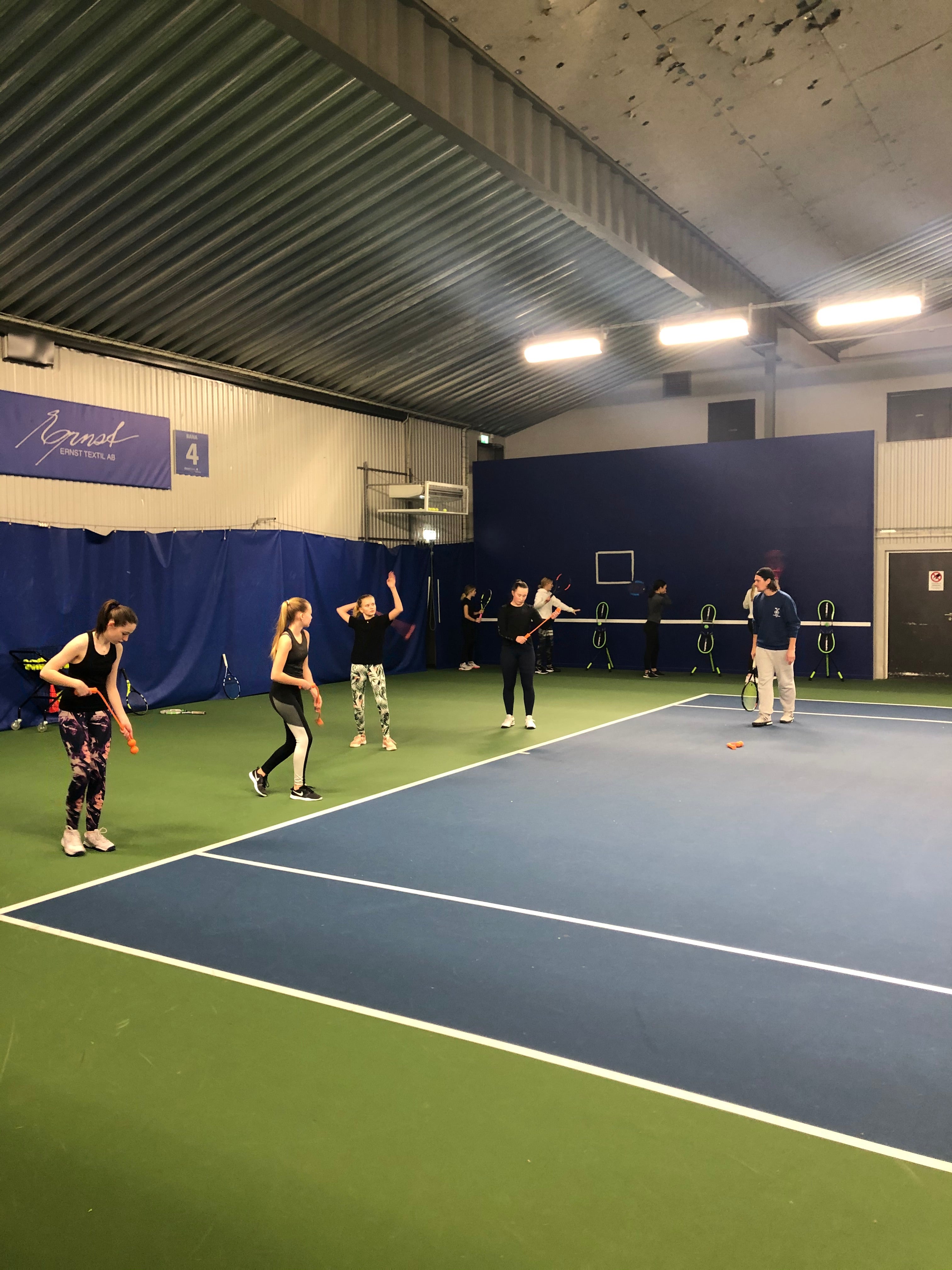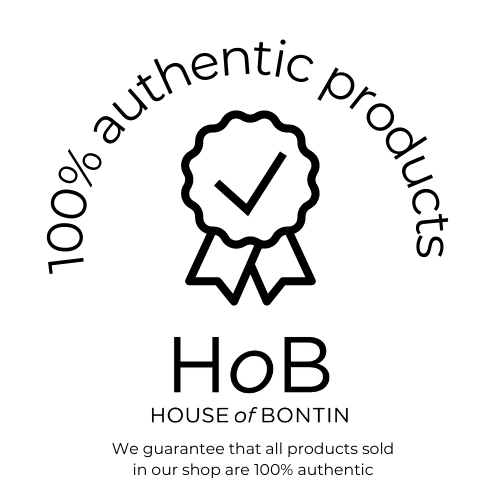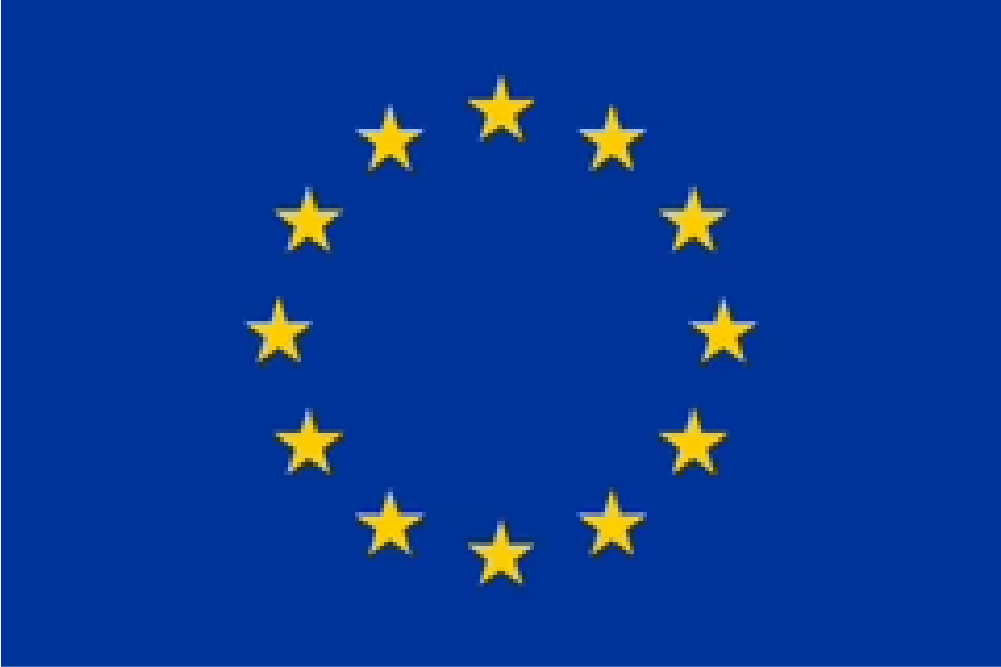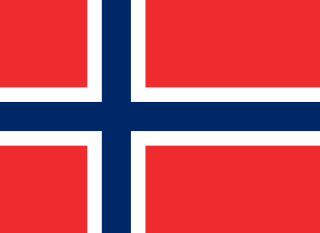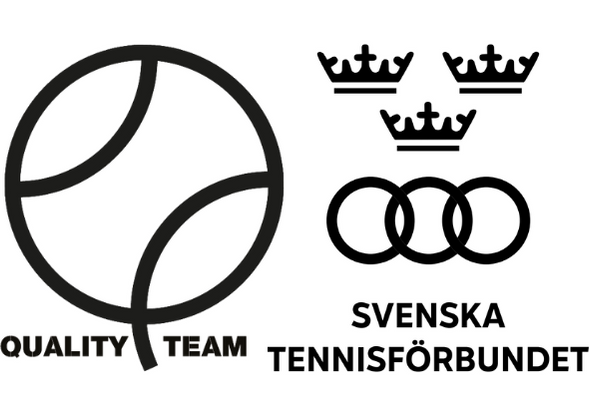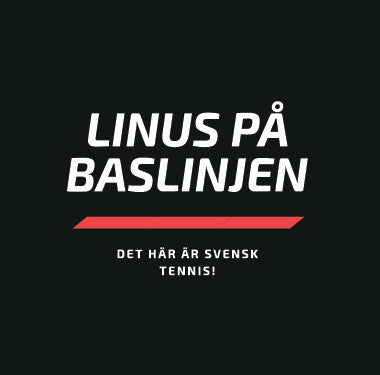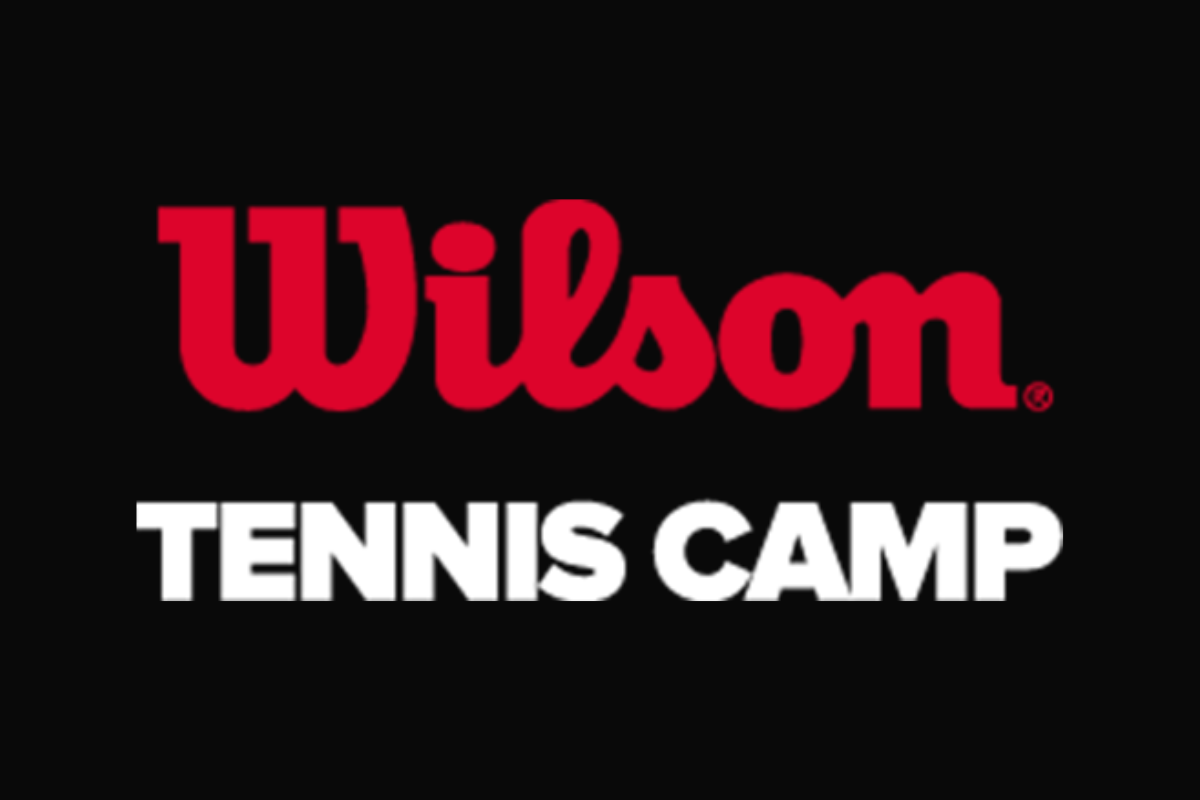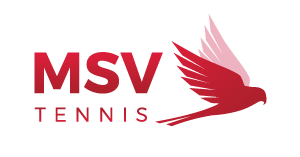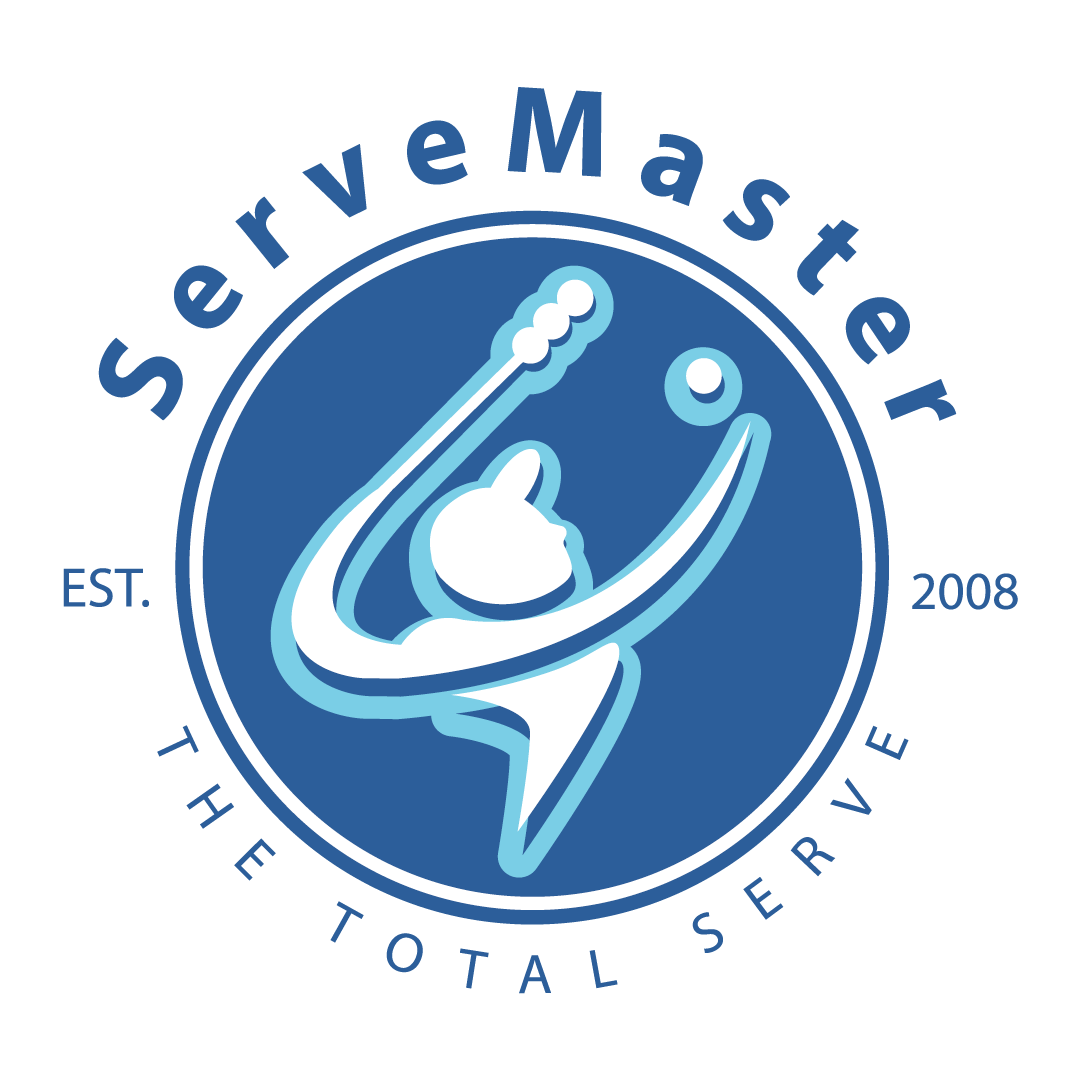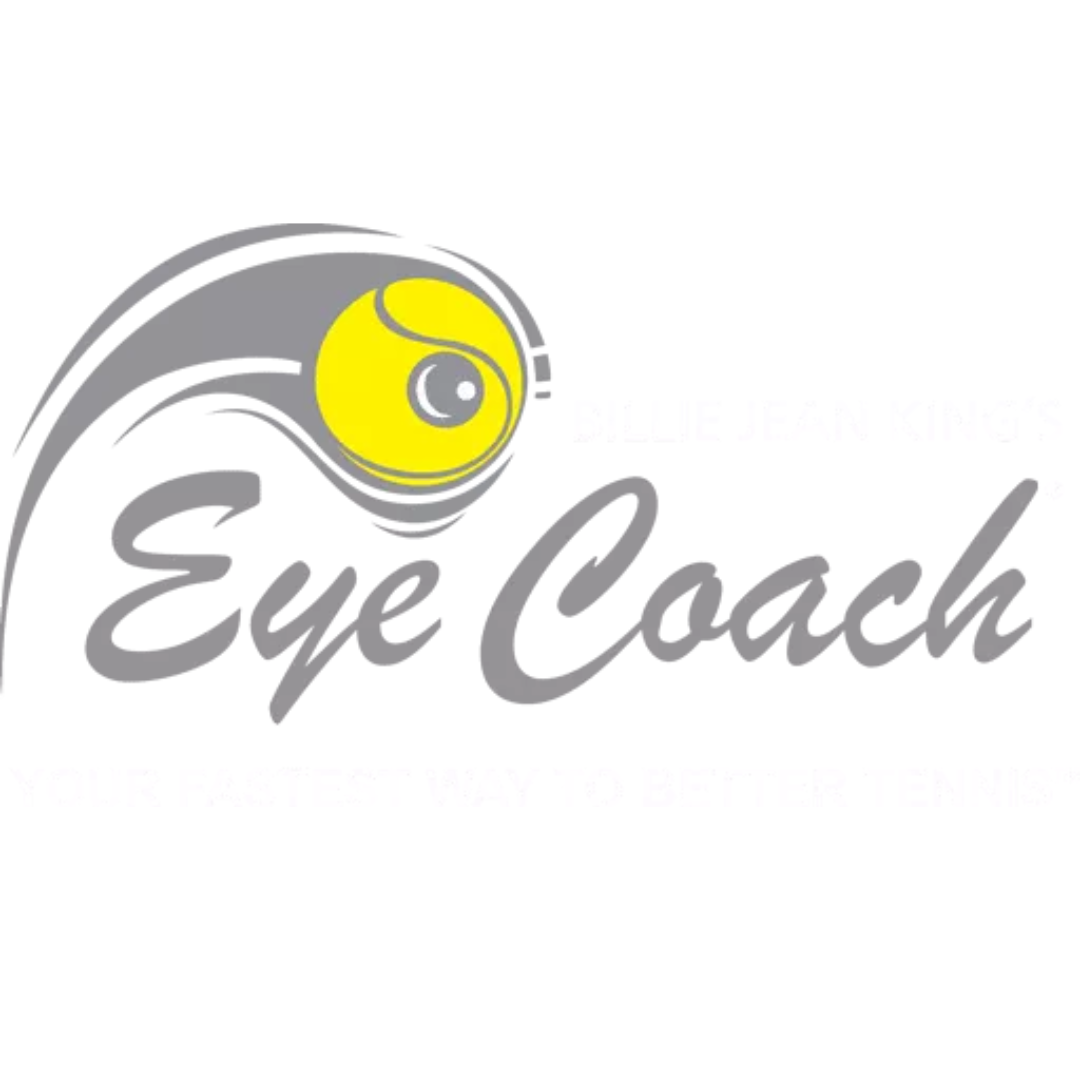
Petter Bontin - with a burning desire to contribute to Swedish tennis!
From a hockey career via cosmetics and beauty products to wanting to help improve Swedish tennis. But how do you do that if you don't have the playing strength or coaching skills? Well, you find a void and fill it.
By: Linus Eriksson
Name: Petter Bontin
Age: 44
Occupation: Founder of the company "House of Bontin"
Favourite tennis player: Rafael Nadal & Serena Williams. Partly for their incredible success but also because of the way they play tennis and how serious they still are (and always have been).
Motto: Hard work beats talent, when talent doesn't work hard.

Football, ice hockey and golf were the sports of choice for Petter Bontin growing up in Piteå. In hockey he was selected for the TV-Pucken and in football for the county team. When it came time for high school, Petter was accepted to the sports high schools of the time in both hockey and football, but chose hockey and moved to Luleå at the age of 16. He remembers it as a fun time where he grew as a person by having to take more responsibility for himself.
-"I think it's easy to be attracted to moving away from home, but it doesn't have to be the right thing for everyone at that age," says Petter.
In his final year of high school, Petter was in the A team squad but found it difficult to get a regular place and play. He therefore decided to move home to Piteå and play in what is now called Allsvenskan. After a turn to Stockholm, he ended his venture at the age of 22.
-To succeed in sports I think you need a dedication and a kind of talent to be able to train hard. During my years in Piteå, I lost a bit of humility and seriousness because there was a lack of proper guidance, which I know exists today. There was no one to keep an eye on us. But, important to point out, I had mates in the team who then succeeded so the responsibility was obviously ultimately on me.
After his ice hockey career , Petter worked for 20 years in cosmetics and beauty products, where he built his own companies, among other things. The last few years he was employed as CEO of a large international company, but early on he dreamed of going into business for himself again, but this time in the world of sports where he felt his real passion lay.
He had only played tennis with friends in the summers, so there was no real background in it, but when he was googling around tennis one day, he found the TopspinPro training tool and thought it seemed clever. He ordered one privately for his daughters, but thought it was brilliant himself and started hitting it himself.
-I fell in love! So I contacted the brand owners and asked if they were looking for someone to take care of the agency in the Nordic region. From there it grew. The second tool I got the agency for was ServeMaster and after that I felt I wanted to do this full time! I thought: how can I be a part of Swedish tennis and make a difference? Since I don't have a tennis background, I can't go straight in and become a coach. But if I can pass on smart training tools that are good for players of all ambitions and ages but are also a tool for coaches, then I can contribute to Swedish tennis in that way. On 1 April this year, I resigned from my real job and put my full effort into "House of Bontin".

The portfolio of tools that Petter sells has grown since then. Today you can also find GripFixer, RS Coach Bag, Slinger Bag, TennisPointer, Toalson Sweet Area Racket and also tools for Padel, among others.
-I've always enjoyed building businesses, but to now be able to do it in a company where I genuinely like the products is fantastic!
What are the similarities between what you do now and when you were in the cosmetics business?
-It's really super similar, just a different type of product. It's about coming prepared to meetings, being knowledgeable, professional and delivering what you promise. Of course I am a sales person, in that way there is no difference, but the difference is that in this world I suck up inspiration and knowledge like a sponge because I am so curious to learn more about tennis myself! I am incredibly grateful to all the generous coaches I have met over the last year who have shared tips with me. I learn new things during every meeting I have!
When you started working in sales, how has your background as an elite athlete benefited you in this professional life?
-I would say that I have benefited concretely from sport. It's all about the same fundamentals: performing and succeeding in your goals. I aimed to be the best salesman or the best manager when I started my companies. The stimulus I got, and still get, from working hard and building something is the same as in sport. In team sports it was about working in a team, just like in a business, but it is transferable to tennis as well where as a player you need coaches and supportive parents.

In addition to his connection to tennis through his company, Petter Bontin is also a tennis parent. He has two younger daughters, Judith and Vega, who train and compete regularly. The daughters' interest in the sport has grown as Petter's business has done the same.
-I wanted Judith and Vega to try many different sports, which they have done. They've probably tried everything, but now it's football and mostly tennis that take up their time.
Coming from a team sport, what is it about tennis that you've taken a liking to?
-There are so many parameters that come into play in tennis! The complexity is great with many factors at play. Then that it's man against man or woman against woman - that it's up to myself on the court. Plus of course your team that helps you on the side.
Can you see any differences in children's tennis compared to, say, hockey or football?
-Yes, in tennis you learn to take responsibility. It doesn't work not to have filled the bottle - in football you can always take your friend's bottle, but you can't do that in tennis when you're on your own. In tennis you can also level up a lot which many team sports don't want to do, there you have to play at your age and once a week. I find that if you have children who want to play more, tennis is good at seeing the individual.
Looking at your role as a parent, what has it been like coming in as "new" to the tennis world but still with a lot of sporting experience?
-If I look at myself as a tennis dad, the big difference with tennis compared to team sports has been that team sports are structured differently. In tennis there is a lot of personal responsibility if you want your kids to play a lot. You have to ask a lot of questions if you're not lucky enough to be in a club that guides you. It's not booked and ready with cups and tournaments like it is in team sports where you more or less just hitch a ride - you have a huddle for a certain time and then you go together. There is a lot of responsibility here on you as a parent. Now I'm inquisitive and I've been lucky to have acquired a network with the company, but it's quite a hassle with things like competition licences, going into tournament software and checking things out. Maybe there should be guidelines for new parents on how to do this? I often get questions from parents who are new what the competition license is. They usually say "what, we're members of the club?".
Petter has visited many tennis clubssince the start of the House of Bontin to show off the training equipment he sells. Often the club will book a visit from Petter where he demonstrates the tools to the club's coaches. In this way, he has been able to visit many tennis halls and meet many coaches in both large and small tennis clubs in different parts of the country. What is his picture of what Swedish tennis looks like and how the talk goes?
-First of all, I would like to say that there are a lot of positive things in Swedish tennis! There is a great commitment and many clubs and coaches who are fantastic and want a lot. The big challenge for tennis is the economy. It's actually strange that there isn't more money at all levels, because it should be very attractive to be seen in tennis environments. I can also see that we should invest even more in coach education as coaches are the foundation for us to develop, whether it's for recreational or junior tennis. I myself live in Stockholm and here it is also incredibly difficult to find training times, especially during the winter months. Tennis moves people and many want to play, so it's a shame that it's difficult to find courts. Another part I've been thinking about is the communication part. In team sports, you get emails or if the club has an app that tells you when the meetings are and so on. That's where I think a lot of tennis clubs can get a lot better at communicating.

When Petter started building the House of Bontin, he didn't know what to expect. Here he came up with training tools to, among other things, simplify the work for the coaches - how would they feel about that? In a sport that could be considered conservative. However, the reception has been beyond expectations and the response fantastic.
-I feel like I've been welcomed with open arms and by a curiosity that has been amazing. The feedback I have received is that this is positive for Swedish tennis. What has been exciting is that I can clearly see that many coaches themselves have had ideas for products and tools to teach. Some have built their own variants or come up with suggestions on what they would need for certain specific purposes. I notice that many are passionate about making training more effective.
I myself can imagine that there are certainly trainers who think that training tools are not needed, that what has always been taught works well...?
-I understand what you mean, but my experience is that very few are conservative in that way. Of course there are some who have thoughts that maybe a tool should have a different angle or similar, but then we have open and fruitful discussions where I also learn and get ideas. For example, on TopspinPro there have been discussions that there is too much just drill movement, but then you can take the wing off so you can swing more forward instead. You have to remember that this is a complement to the other training, playing cross and hitting cones is of course still important. What we want is to develop products that are not just a fun gadget but really make a difference.
Inevitably pretty cool is how Petter is now combining utility with pleasure. He's building his own business in the sports world that he loves, contributing to the development of Swedish tennis while his daughters play intensely. What is it like to combine these worlds? Of course there are positive aspects, but are there dangers too?
-The role of a sports parent is fantastic! It's a choice you make if you want to support, but I love being a part of my children. Of course it takes a lot of time, especially in a big city with a lot of pushing and shoving. However, everything should be based on the children's interest - the fact that I love this shouldn't reflect in the wrong way. Sometimes it can be hard to be objective, so I think it's important to self-reflect and talk to someone who looks at it from the outside sometimes, because it's easy to become speed-blind. You want it so badly, but that doesn't mean you're always doing it right. Of course, sometimes everyone needs a little nudge forward too, including my children, but it's all about sensing the situation.
Petter himself plays tennis for a few hours a week ("I wish I had more time"), but is happy that at the age of 43, together with his wife and children, he has found a new passion in life,
How do you deal with winning and losing? When you played sports yourself it was for many years at elite level, now you have a role as a parent in children's sports instead?
-It's important for many people to win, it was for me too, but in tennis you are alone and can't hide in the same way as in a team. That's where it's different. I think it's important for us as parents or for club coaches to talk about the effort first and foremost. Sometimes it's hard to reason logically with a child - in every competition someone is standing and crying while someone is cooing and squealing. In team sports, almost no one cries, which is interesting. I don't think you do in tennis after a series match either? But anyway, I think it's important to push for the long term and for performance. Immediately after the heat of battle it can be difficult to reason about it, but quite early after a match I think you should still try to talk about it.
House of Bontin has been growing like crazy since its inception. Petter takes orders from both clubs and individuals, so much so that his wife Lisa will soon be working full-time with the company as well. Is it thanks to the explosive growth of the paddle?
-Tennis is our heart, but we also have some padel tools. Our future range will also include regular cones and markers - we want to be a full-service supplier to a tennis club. Everything you need for your business or your private tennis game you should be able to find and get advice from us. Whether you are a junior, an amateur or a retiree.
"House of Bontin" has been a partner of the podcast and the website since the start of "Linus on the baseline".
Why have you chosen to support "Linus on the baseline"?
-When my interest in tennis was piqued and I had some time on my hands, I discovered your podcast while googling around on the web. I know several guests with tennis backgrounds have said the same thing, but for me without a tennis background it has been an incredible source of inspiration and learning. Listening to how different coaches look at things, from juniors to club operations, has been a goldmine for me to learn more about tennis. Over time, as I have become more involved in tennis, I have come to appreciate even more that you raise interesting issues, both high and low, and I appreciate that you want to use your view of things to promote Swedish tennis and the best of Swedish tennis by raising issues about how we can make things even better.
So, since I know you listen to the podcast Petter, I thought I would end this interview by asking what you have changed your mind about in the last year, since you started working in the tennis world?
-Haha, I knew that question would come! I actually went into this very openly and tried not to have too many values and preconceived notions. Because of my background, I was pretty blank and so I didn't really change my mind about anything because I didn't have anything to compare it to. However, I have realised things that I didn't understand or know about before. Especially in the role of a tennis parent, how much it is to get involved and what things cost. If we talk about another year, I've certainly changed some perceptions because I've started to form more of my own picture and perception of things, which I'm sure means I'll also change a lot in the future. Because we're always learning new things, aren't we?
If you use the discount code "Linus", it gives you 15% off the entire* range at House of Bontin *excludes already discounted products and package offers.
Read the report directly on Linus on Baslinjen's page: Petter Bontin - with a burning desire to contribute to Swedish tennis! - Linus on the baseline
Read more reports from Linus on Baseline: https: //linuspabaslinjen.com/
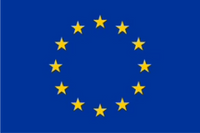
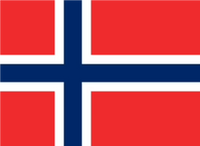 Shipping to EU & Norway
Shipping to EU & Norway

